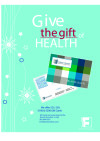Until recently not many knew a lot about the importance of DHA supplements.
DHA or (Docosahexaenoic Acid) is an essential compound that is naturally found throughout the body, but is more abundant in brain, eyes and heart. DHA is vital for proper functioning of your brain and eye. Its absence is known to cause deteriorated and interrupted brain function.
DHA deficiency affects normal transmission of signals across membranes in the brain. Its deficiency may speed up aging and cause various health problems, such as behavioral disorders, depression, hyperactivity, postpartum depression, stroke, Alzheimer’s disease, Parkinson’s disease, schizophrenia, cancer, and diabetes.
An optimal intake of DHA supplements can help in preventing these problems and inhibit several heart and neurodegenerative diseases
DHA is vital for formation of the structural components of the brain. It accounts for 50% weight of the neuronal membranes in the brain. It is also required for structural and functional components of central nervous system and brain
In our bodies, DHA:
Promotes brain growth and development.
Aids mental processing and psychomotor development in infants.
Prevents attention deficit hyperactivity disorder (ADHD).
Enhances academic performance and learning capability in school children.
Reduces cellular and vascular inflammation in brain.
Increases production of ‘feel good’ chemical ‘serotonin’.
Increases levels of ‘memory boosting’ chemicals in brain.
Facilitates anti-aging processes by neutralizing oxygen free radicals in the body.
Reduces cardiovascular diseases by controlling blood pressure and coagulation.
If you feel that DHA could potentially be beneficial to your health and optimize your daily functions, then don’t hesitate to ask our health care professionals for advice. Remember to ask a professional any questions or concerns before taking any kind of Vitamins, Minerals or Supplements in case of interactions with other medications you may be taking.
Live Healthy!


